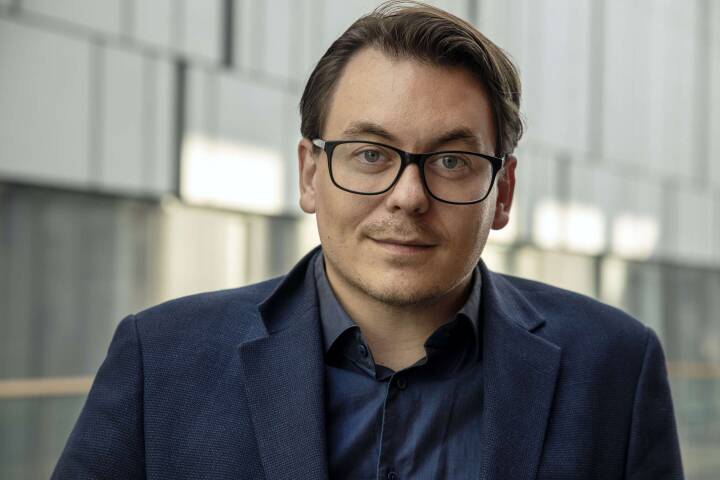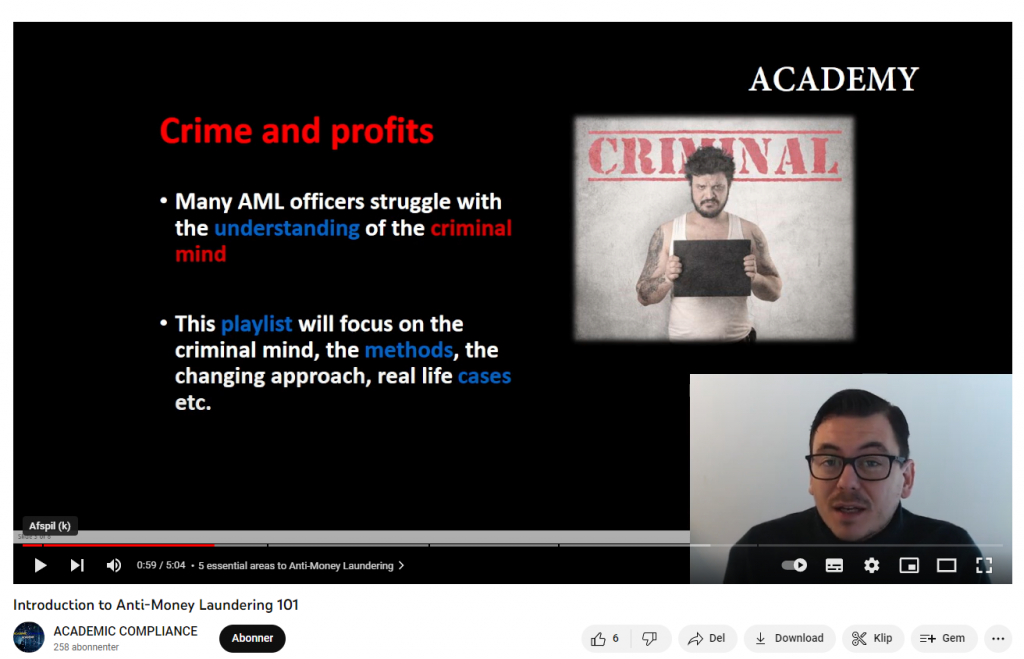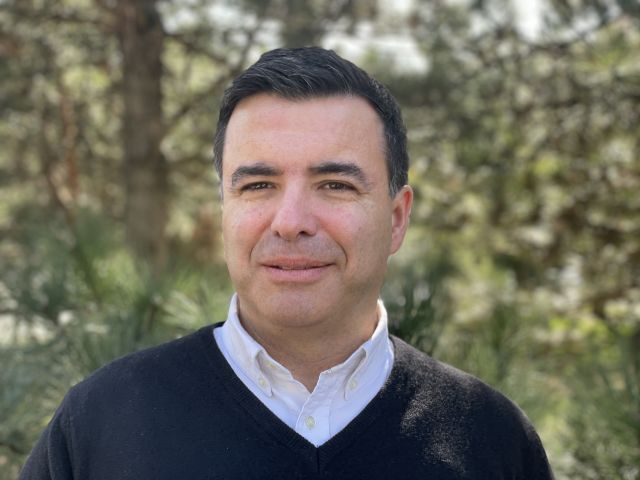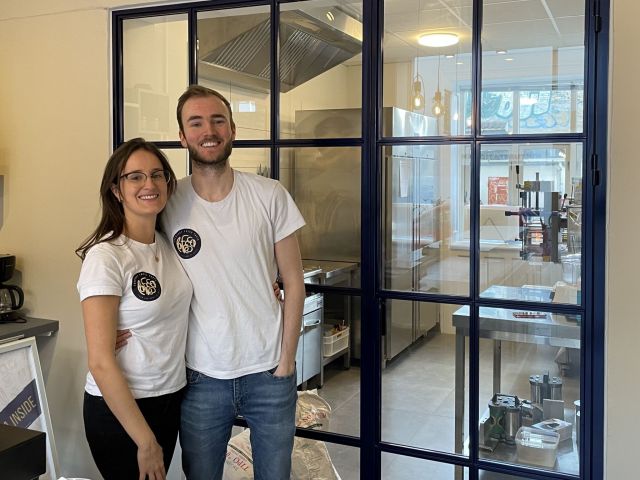CBS Associate Professor starts YouTube channel on compliance: “We must communicate research differently”

“It can be a bit intimidating putting your whole research and work process in front of an audience, but I felt that would give me the best book.” Associate Professor Kalle Johannes Rose created a YouTube channel to be able to interact with the people working with compliance who would be the target audience for his book.
For Associate Professor Kalle Johannes Rose, his YouTube channel about risk-based compliance serves many purposes. It is both a personal tool to help him structure and explain the material as well as an opportunity to reach out to people working with compliance and for them to ask questions before he finishes a new book. He believes that researchers should think differently about how they communicate their research, and that CBS could do a better job of helping them.
How would you write a book in an area with little literature and few other experts? For Kalle Johannes Rose, Associate Professor at CBS Law, two approaches appeared to exist if he wanted to write the book about risk-based compliance he felt was missing.
Either he could simply start writing, publish the book and hope that he was right. Or he could share his journey with other experts in the field, conversing with them along the way. He chose the last option and has started a YouTube channel, Academic Compliance, where he shares his journey.
“It can be a bit intimidating putting your whole research and work process in front of an audience, but I felt that would give me the best book. I would be able to interact with other experts in the field as well as people working with risk-based compliance every day,” says Kalle Johannes Rose.
Companies trying to prevent money laundering can’t simply look at what the criminals are doing now. They must think ahead and imagine what the criminals might be doing; because money launderers will always try to bypass the law for their criminal activities.
Kalle Johannes Rose, Associate Professor, CBS Law
Of course, the interaction with others means that they can share their knowledge, ask him questions and correct potential errors. So far, the YouTube Channel has already given him several questions that he is hoping to explore and expand on in his book.
“Being able to explain in a video helps me write it”
The possibility of getting in touch with other experts in the field was just one benefit of starting the YouTube channel, which is also a great way for Kalle Johannes Rose to structure his thoughts about the topic and help him explain them.
“Explaining something verbally is much easier than writing it down, which is also why the videos are a great help. In that way, the project is very personal in terms of working in a new way, sharing the research along the way and learning to use YouTube as well,” he says.
Everything Kalle Johannes Rose says in the videos is dictated into a document. This gives him a stack of notes in everyday language that he plans on using as the starting point for his academic book.
Courses on money laundering prevention needed – the perfect example of risk-based compliance
Dealing with risk-based compliance involves considering how the world functions, before attempting to follow the law. To demonstrate this, Kalle Johannes Rose uses money laundering as an example on his YouTube channel.

Kalle Johannes Rose thinks that American universities are often better at using social media. He has plans to make several hundred videos to disseminate his research.
“Companies trying to prevent money laundering can’t simply look at what the criminals are doing now. They must think ahead and imagine what the criminals might be doing; because money launderers will always try to bypass the law for their criminal activities,” he says.
Money laundering is one good example of how to navigate in a business where you must remain constantly one step ahead to ensure compliance. But the videos on preventing money laundering also serve another purpose for Kalle Johannes Rose.
“This is an area where we should share our knowledge to be able to deal with this crime better. I think the existing courses on money laundering prevention are very overpriced and many of them deal with the same topics as the videos I plan to post,” he says.
He currently has a list of 300 videos planned for his book on risk-based compliance and 400 for his course on money laundering.
“CBS should do more to distribute research”
Can other researchers think differently in terms of communication?
“Of course, it’s beneficial as a researcher to think about how you can spread word of your research,” says Kalle Johannes Rose. “YouTube can be one way, but researchers can explore many other ways if they are interested.”
However, the most helpful would be for CBS to take a more active part in distributing and promoting the work of their researchers, he suggests. Not just the finished research, but also the white papers.
“This could open a discussion of the work and enable companies that have relevant knowledge to ask questions before the work is completed. Just as they can with my YouTube channel. As a business university, our research is very relevant to businesses but usually they do not hear about it until after it is finished.”
He believes that especially the US universities that CBS usually compares itself with are much better at using social media.
“If we want our research to be relevant and reach the target audience, I think it’s crucial that we start thinking differently about how we communicate it,” he says.




































































































































Comments